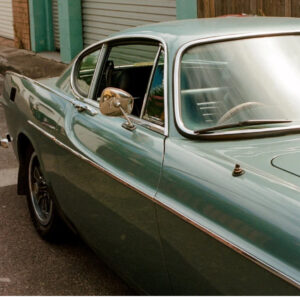
A prestige car is more than just a vehicle. For many car enthusiasts, they are a passion, an investment, and often a significant part of their legacy.
As a prestige car owner in Australia, ensuring that your prized automobiles are properly accounted for in your estate plan is crucial.
David Kaplan, Co-founder of Willed, an Australian online platform for end-of-life planning, shares his insights on how to effectively include high-end vehicles in your estate planning.
Valuation: The First Step
The first step in estate planning for your prestige cars is to have them professionally valued.
“Prestige cars can appreciate significantly over time”, says Kaplan. “You want to ensure your estate plan reflects their current market value, not just what you paid for them.”
To get a proper valuation, you probably need to get it appraised by a specialist who understands the nuances of the luxury and classic car market. If you own a particularly rare vintage car, this valuation should be updated regularly since prices for classic models can fluctuate dramatically.
Specific Bequests vs. General Estate
When it comes to including your prestige cars in your Will, you have two main options: making specific bequests or including them in your general estate.
“If you have a particular heir in mind for a specific vehicle, a specific bequest might be the way to go”, said Kaplan. “Just be aware that this can complicate the estate administration process, especially if the car’s value changes significantly over time and the Will hasn’t been updated to reflect that.”
Alternatively, you might choose to include your vehicles in your general estate so that whoever you choose as executor handles their distribution or sale along with your other assets.
Consider the Tax Implications
In Australia, while there’s no inheritance tax, capital gains tax (CGT) can apply when a beneficiary sells an inherited asset. Cars are generally exempt from CGT unless they’re considered collectibles worth more than $500, which classic and models prestige models will be valued north of.
If your beneficiaries inherit a prestige car and decide to sell, they will have to handle the tax implications.
Given the complexities of tax law, it might be worth checking with a tax consultant to navigate the most tax efficient route through these complexities.
Maintenance and Storage Considerations
If you’re planning to pass on your prestige cars to heirs who may not have the means to maintain them properly, consider setting up a trust with provisions for the vehicles’ upkeep.
“Many prestige car owners overlook the ongoing costs of maintenance and storage,” says Kaplan. “If you want to ensure your cars are well-cared for after you’re gone, you might consider setting aside funds specifically for their upkeep.”
This could include provisions for its storage, regular servicing, insurance, and even track day experiences for the beneficiaries to enjoy the cars as you intended.
Variations Between Australian States
It’s crucial to understand what happens if you die without a valid Will in Australia, as the laws of intestacy vary between states and territories. This variation can significantly affect how your prestige cars — and other assets in your name — are distributed after your passing.
“Many Australians don’t realise that intestacy laws differ across the country,” Kaplan explains. “This can lead to unexpected and potentially undesired outcomes, especially when it comes to valuable assets like classic cars.”
Here’s a brief overview of some key differences:
Documenting Your Collection
Beyond the legal aspects, it’s a good idea to document the full history and significance of any cars in your ownership that you wish to pass on as part of your estate planning.
You can start with an inventory of your vehicles to include each car’s history, any restoration work, notable events they’ve participated in (such as Australian motoring events or shows), and even your personal driving experiences with each car.
This documentation can be invaluable for whoever inherits the vehicle, helping them understand and appreciate the legacy they’re receiving.
Regular Review and Updates
As with all aspects of estate planning, it’s important to review and update your plans for your prestige car collection regularly.
“Your car collection is likely to change over time, as might your wishes for its future,” Kaplan points out. “Make it a habit to review your estate plan whenever you acquire or sell a significant vehicle, or at least every few years.”

